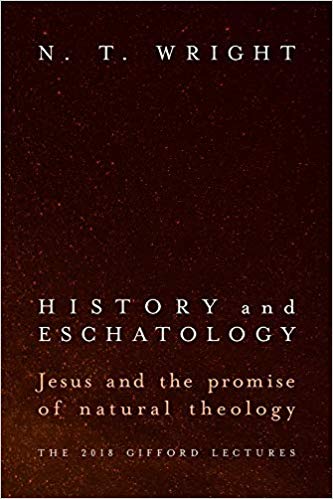BEN: One of the real strengths of this book is that you are able to chronicle the intellectual history from ancient Epicureanism to the present and show how the dominant world view today is not much different from ancient Epicureanism in the way it brackets out God and ‘the supernatural’ from history and ‘natural causation’. Since most of our audience will associate Epicureanism with hedonism, the pleasures of the palate and the flesh, explain what you mean by Epicureanism, and how it still informs modern presuppositions about the nature of the world.
TOM: Ancient Epicureanism was indeed known – by its opponents at least! – as hedonism. This, however, was at least in part a slur, since the serious Epicureans (represented by Lucretius) knew that over-indulgence in fleshly pleasures was counter-productive. They recommended a cooler, more detached pursuit of pleasure. But Epicureanism was far more than a charter for pleasure, whether licentious or restrained. It was a worldview, competing with Stoicism and the various forms of Platonism – as it still does. Stoicism saw the gods and the world as bundled up together in various kinds of pantheistic mix; Epicureanism saw the gods as completely detached from our world (though made ultimately of the same stuff), so that the gods don’t interfere in our world and nothing we can do will affect them. Since there is no divine action in the world, the world ‘makes itself’ through the random movement of atoms, which sometimes ‘swerve’ and, bumping into one another, produce different forms of life. This is the direct ancestor of modern evolutionism (not the biological theory of evolution, but the worldview which preceded it by a century or more on the a priori assumption that, with God or the gods absent from the world, the world must proceed under its own steam). ‘Epicureanism’ is therefore at the root a theory about how the world works; a theory which allows for the existence of the gods but which insists that they are not involved in our world, nor we in theirs.
Hedonism – in whatever form – is therefore the only proper motivation for action, since nothing we can do will either impress or affect the gods, and since when we die our atoms simply dissolve, so that, in the famous phrase, at death there is ‘nothing to be afraid of’. As Catherine Wilson comments in her book on Epicureanism at the origins of the Enlightenment, the ancient philosophy sounds remarkably familiar because it is in fact what most modern westerners implicitly believe. The real tragedy is that so many modern Christians have responded, not by re-inhabiting the biblical worldview, but by reaching for forms of Platonism (including the word ‘supernatural’ in its modern sense of divine ‘intervention’!) to bridge the gap between our world and God’s world. How much better to explore the biblical notion of the Temple, and the promise – not that we will eventually dwell with God, but that God will eventually dwell with us, setting up his kingdom ‘on earth as in heaven’. The Platonist would be shocked: that’s a category mistake, and an unwelcome one at that. The Stoic would be puzzled: surely God’s world and the human world already intersected completely (ignoring the problem of evil, of course). The Epicurean would find the idea of God’s kingdom arriving on earth both tasteless, tactless and thoroughly inconvenient. One might have to start sharing one’s favorite wine with those lower-class people down the road . . . Jesus would be delighted, having already turned the local water into even better wine, but always ready to accept another bottle or two from unexpected sources . . .













